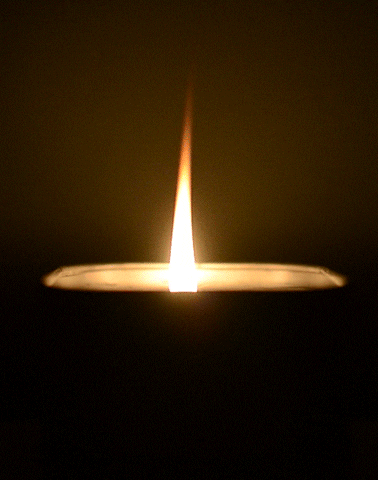Kever Avot – 5781 – Individual Observance
Honoring
Few of us grew up in Mendocino, so not many of us have family buried here, but there are other ways we can honor family and friends during the Days of Awe. In the Jewish, tradition, one never “gets over” a death, one continues to remember and miss the person who we loved and was once a part of our lives.
A Kever Avot observance may be more personal than Yizkor (literally “he remembers”) which is a formal community service. Yizkor is, traditionally held four times a year.
There are many ways we could choose to remember someone, as a Kevar Avot practice. This could be very simple or more involved. We might choose to focus on one person or many. They might be ancestors, partners, children, friends, teachers, anyone really who comes to mind. If you feel so inclined, see where your heart leads you during this time.

Lighting a candle – El Malei Rachamim
A very simple thing one could do is to light a candle in memory of one or many who have departed this life. You might want to write their name(s) to have before you. (Never leave an open flame unattended, please)
It is tradition, that one only recites the Mourner’s Kaddish (Kaddish Yaton) in the company of a Minyan.
However, one is encouraged to say the El Malei Rachamin (God Full of Compassion) prayer, in the memory of the dead, even when one is alone. (There are versions of this prayer in the appendix.)
Reminiscence
You might want to choose a person or several people who were important in your life and bring them to mind. You might want to remember the times you shared. Maybe things will come to mind that you had not thought about for a long time. If you have photographs, you might want to look through them. You might want to get in touch with someone who knew a person you are thinking of and share memories and feelings, or talk about them to someone you are close to now, who never knew them.
Writing
Writing comes easily to some people, less easily to others. (Mark Gross is offering an excellent online class through the MCJC, helping people learn how to write more easily.)
You might want to write down your recollections and feelings for someone who has died. This can be a way to memorialize them. This is something that can be preserved and handed down to subsequent generations (Dor v’Dor). It might not be fully appreciated now, but it almost assuredly will be later. It can also help process feelings which may have been percolating under the surface.
Family Tree
This sounds like a simple thing, but it is surprising how quickly memory fades. We remember our grandparents names and maybe our great grandparents, but things get fuzzy beyond that. One thing you could do for your children and/or nephews and nieces is to create a family tree. There is software for this, but all you really need is good quality paper and a pencil.
Many Tanachs have a section for a family tree. It is a tradition that the family bible was the place where the family history was kept, because it was unlikely to be lost.
Oral History
Many people find it easier to talk than to write, and in some ways a recording is a more honest record. Today, with computers, tablets and smartphones, recording technology is ubiquitous. You might want to honor someone by talking about them and making a recording, a parent or grandparent perhaps, preserving memories that would otherwise be lost forever.
Some people find it easier to be interviewed. There may be someone in your family or life who is interested in these recollections. You could do an oral history via a ZOOM session, record it, and save the recording for posterity. (Recording on ZOOM requires a $15.month Pro account which can be canceled at any time.)
Tzedaka
Giving Tzedaka (charity) in memory of someone who has died is a very old Jewish tradition. This is a way of honoring them and doing good in the world. Many people give in multiples of 18, which is the numeric value of Chai, according to Gematria. You might consider giving to a cause which was special to the person in whose memory you are making a donation, rather than one you normally contribute to, like cat rescue rather than Hadassah or vice versa.
©Robert G Evans 09/22/2020
